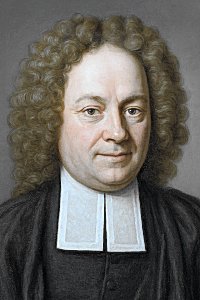Introduction

Born: September 5, 1666, Annaberg, Erzgebirge, Saxony.
Died: May 30, 1714, Perleberg, Brandenburg, Germany.
Pseudonym: Christophorus Irenaeus.

Born: September 5, 1666, Annaberg, Erzgebirge, Saxony.
Died: May 30, 1714, Perleberg, Brandenburg, Germany.
Pseudonym: Christophorus Irenaeus.
Son of the local schoolmaster, Gottfried in 1682 went to the Gymnasium at Gera, and three years later to the University of Wittenberg. There he studied theology and history. Afterward, through the influence of Philip Jacob Spener, the father of pietism, he became a tutor in Quedlinburg.
His first work, Die Erste Liebe zu Christo, appeared in 1696. It went through five editions before 1728, and gained Arnold a high reputation.
In the year after its publication, he was invited to Gießen as professor of church history. But he disliked academic politics and academic life so much that he resigned in 1698, and returned to Wittenberg.
The next year Arnold began publishing his largest work, his Unparteyische Kirchen- und Ketzer-historie (Impartial History of the Church and of Heresy) (Frankfurt: 1699–1700).
In its two hefty volumes some thought he showed more sympathy towards heresy than towards any established Church, or especially the clergy. Leo Tolstoy (The Kingdom of God Is Within You, chapter 3) described the book as remarkable, although little known.
In this major revision of church history, Arnold directed his sharpest criticism against those who wrote what he saw as biased apologetic orthodox
histories instead of trying to understand where substantial religious differences actually came from.
His next work, Geheimniss der göttlichen Sophia, showed Arnold had developed a form of mysticism including a female image of wisdom as a kind of divinity. Soon afterward, though, his marriage and his acceptance of a pastorate marked a sharp change of views, and he produced a number of noteworthy works on practical theology.
He was a thoroughly learned and prominent Pietist Lutheran, with a wide range of influence, and at least in his early career a radical Pietist, vehemently opposed to the unbending ecclesiastical structures of his time.